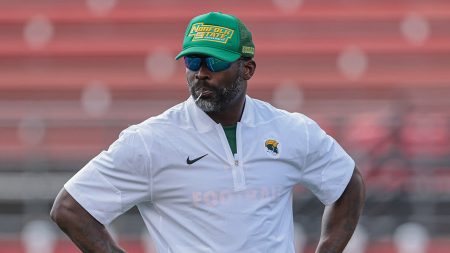Lia Thomas, a transgender swimmer, generated controversy in 2022 after winning the NCAA championships. However, she lost a legal battle against rules preventing transgender swimmers who have experienced male puberty from competing in elite women’s events. The Court for Arbitration of Sport dismissed Thomas’ request for arbitration with World Aquatics, which had implemented policies banning transgender swimmers from female events and creating an “open” category for transgender athletes. Thomas challenged the rules, claiming they were invalid, unlawful, and discriminatory, but the court ruled that she lacked standing to challenge them in this case.
The three-judge panel stated that USA Swimming did not have the authority to modify the scope of application of its rules. World Aquatics emphasized its dedication to fairness, respect, and equal opportunities for athletes of all genders, reaffirming its commitment to inclusivity in aquatic sports. The organization’s gender inclusion policy, which includes an open category for transgender athletes, was designed to align with these core values. The ruling effectively extinguished any hopes Thomas had of competing in the Olympics, given the policy preventing biological males from entering women’s events unless they transitioned by the age of 12 or before experiencing male puberty.
The policy change was influenced by the International Olympic Committee’s guidelines and recommendations from November 2021, urging international federations to develop their own sport-specific eligibility criteria for the women’s competition category. Thomas, who did not immediately respond to requests for comment, was represented by Tyr LLP in the case. The organization also did not provide a response to Fox News Digital’s inquiry. Despite the setback, World Aquatics remains committed to working with all stakeholders to uphold inclusivity principles in aquatic sports and stands by its gender inclusion policy as a fair approach.
The controversy surrounding Lia Thomas and her participation in women’s swimming events highlights ongoing debates and challenges surrounding transgender athletes in elite sports. Critics argue that biological differences between males and females can create unfair advantages in competition, while proponents of inclusivity stress the importance of providing opportunities for transgender athletes to participate in sports according to their gender identity. The Court for Arbitration of Sport’s ruling reflects the complexity of these issues and the need for clear, transparent policies to address them.
As discussions and debates on transgender inclusion in sports continue, governing bodies and organizations will need to navigate these challenges while upholding principles of fairness and respect for all athletes. The case of Lia Thomas serves as a focal point for these discussions, shedding light on the complexities of gender identity and athletic competition in the modern sporting landscape. Moving forward, it will be crucial for stakeholders to collaborate and develop policies that strike a balance between inclusivity and fairness in competitive sports. World Aquatics’ gender inclusion policy represents one approach to addressing these issues and ensuring opportunities for transgender athletes while maintaining the integrity of women’s elite sports competitions.













